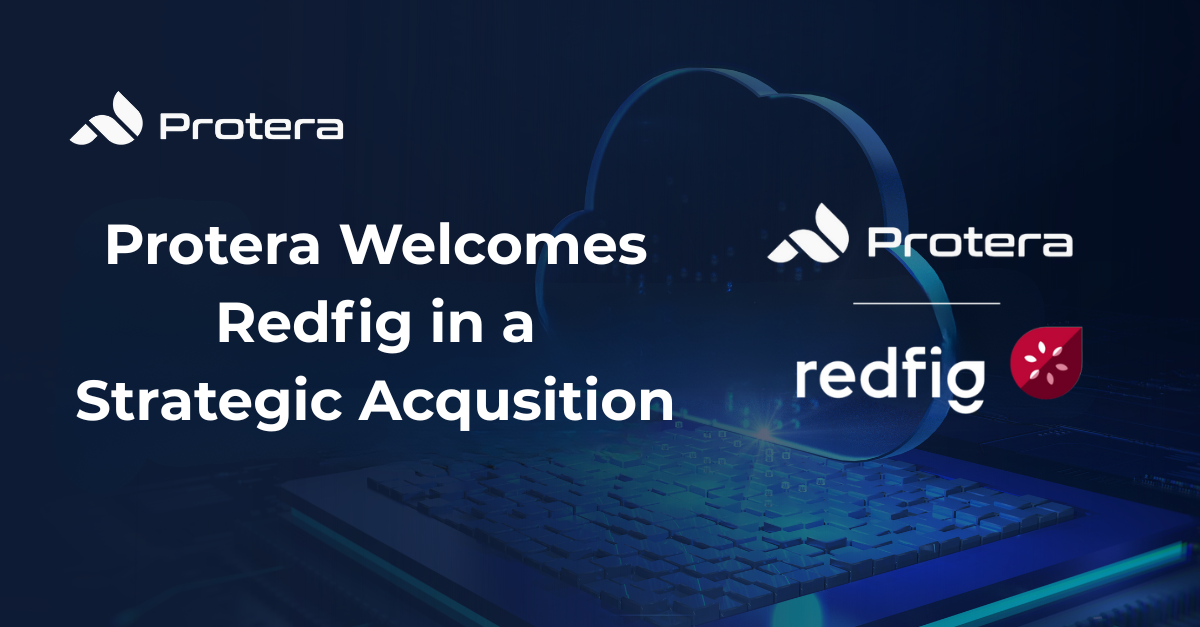In an era where technological agility is a linchpin of business success, SAP environments have undergone significant transformations. While the tried-and-true models of SAP Centers of Excellence (COEs) have long been a staple, the tides are shifting. The acceleration of cloud advancements and the complexity of managing these evolutions have made SAP managed services the front-running model for optimal SAP systems management.
In this article, we’ll explore this shift in more detail, uncovering why SAP managed services are becoming the preferred strategy for maximizing SAP systems value, and the benefits of hiring a comprehensive SAP provider to deliver holistic strategies and consistent results.
Quick Takeaways:
- Company-specific SAP Centers of Excellence (COEs) have historically been a key part of SAP management, but today’s speed of innovation and change is outpacing their capabilities.
- The SAP managed services model is better equipped to help SAP customers operate with agility and stay aligned with new technologies and capabilities.
- Ideal SAP managed services providers have deep SAP and cloud expertise as well as a strong network in both ecosystems.
- Hiring a single, comprehensive service provider delivers better results than juggling multiple specialized vendors.
Why SAP Managed Services Win Over COEs for the Future
For decades, SAP Centers of Excellence (COEs) have been a cornerstone of enterprise IT management, ensuring that standardization, best practices, and in-depth expertise are present in SAP solutions. But in recent years, the emergence of the cloud and increasing speed of technological advancement have started to outpace the benefits and capabilities traditional COEs provide.
Today, the swift evolution of new SAP and cloud technologies, coupled with the imperative to innovate requires a fresh approach—one that SAP managed service providers are best-equipped to deliver.
Here are some of the key reasons why companies using a SAP managed services model will be poised to outperform COE-centered peers in 2024:
The Cloud Era Keeps Moving Faster
The cloud era has ushered in an unprecedented wave of technological innovations and speed at which they’re changing. New tools, improved cloud computing capabilities, and advanced data analytics are all continually evolving, demanding businesses to be agile in their adoption.
COEs, which align more closely with on-premise models, often find it challenging to operate with this kind of flexibility and agility. Their structures, while perfect for traditional (and much more predictable) on-premise tech evolution, can hinder the integration of new cloud-based solutions.
Laggard Adoption of New Technologies
Designed in a time where on-premise solutions dominated, COEs have accumulated extensive expertise in established systems. This depth, while invaluable, can inadvertently lead to rigidity. The modern pace of technology doesn't just require knowledge, it demands adaptability.
The traditional approach of COEs can result in natural hesitance in embracing the latest cloud solutions and capabilities, preventing businesses from reaching full operational and revenue potential.
Adaptability and Expertise of Managed Services Providers
In contrast, SAP Managed Services providers operate with a core mandate to stay updated with the latest SAP and cloud advancements. Their value lies in reliably learning, adopting, and deploying the newest solutions available for clients. With a focus on agility tailored for cloud innovations, SAP managed services providers ensure that clients aren't just keeping up but actually leading in their respective industries. SAP and Cloud providers for their part are leveraging incentives and other mechanisms to mandate that MSPs are getting their teams certified in the latest technologies and services to ensure their customers are in the hands of the most capable service providers.
In short: While COEs have undoubtedly been instrumental in the SAP landscape, the future leans clearly towards the agility and expertise of SAP managed service providers.
Selecting the Right SAP Managed Services Partner
The SAP managed services partner you select will largely determine the success of your migration and modernization efforts. With a myriad of solutions and services available on the market, it’s important to know the most critical attributes to seek in your provider.
1) Deep SAP Expertise
It goes without saying that a deep, diverse understanding of SAP is non-negotiable. Managed services providers should have deep expertise with SAP's suite of tools and solutions and also demonstrate a history of successful implementations, customizations, and management. This ensures that they can handle the unique challenges and requirements your business may have.
2) Deep Cloud Expertise
While there are some instances that warrant keeping some parts of a SAP environment on-premise, there is little debate that the cloud will define the SAP future for most organizations. The quarterly number of SAP S/4HANA customers grew steadily from 2015-2022, and the market for S4/HANA systems integration services is expected to grow through at least 2028.
SAP managed service providers, then, should have deep expertise not only of SAP systems but of the existing and emerging cloud technologies that will define and enable them in the future.
3) Strong Network in SAP and Cloud Communities
Today, the SAP, cloud, and larger tech ecosystems are highly interconnected. That means hiring an SAP managed services provider isn’t just about what that single provider knows, but also the partners they can access through their networks.
A strong network within the SAP community can offer insights into SAP best practices, early access to updates, and collaborative problem-solving. Similarly, ties with cloud hyperscaler communities ensure that the provider is always on the cutting edge, leveraging the best in cloud technologies for your SAP solutions.
4) Solid Reputation and Track Record
Past performance is the most reliable indicator of future results. Examine each potential provider's case studies, client testimonials, and success stories. This will give you insights into their expertise, how they handle challenges, and results clients have experienced from working with them.
5) Essential Offerings and Capabilities
Ensure that the provider offers a comprehensive range of services that align with your needs. This could range from SAP migration and implementation to ongoing management and optimization. Your ideal SAP managed services provider should have a history of adapting to new technologies and offer future-proof solutions that ensure longevity and scalability for your SAP deployments.
Why Hire a Comprehensive SAP Managed Service Provider?
Another compelling question organizations face when they go the SAP managed services route is this: Should we hire a single, comprehensive provider, or multiple specialized vendors?
While having various vendors for distinct services might seem attractive for its specialized focus, the benefits of a unified, comprehensive provider approach often outweigh this fragmentation. Entrusting a single entity with the entirety of your SAP operations delivers greater efficiency, clarity, and cohesion.
It means you can take a holistic approach to managing every aspect of your SAP environment, from data centers and databases to applications to infrastructure and more.
Plus, with the interconnectedness of today’s business environments, comprehensive providers have the resources to quickly access expertise and resources they need to provide solutions, and they make this a key part of their operating strategy.
Here are some key advantages of choosing a comprehensive SAP service provider:
Unified Strategy and Vision
A comprehensive provider ensures that all facets of your SAP deployment and management align under a singular strategy. This holistic approach ensures consistency in implementation, operation, and optimization, eliminating the disjointedness that can arise from multiple vendors.
Streamlined Communication
Engaging with one provider simplifies communication channels. Instead of coordinating with multiple teams, each with their own protocols and points of contact, businesses have a single touchpoint. This enhances the speed and clarity of communication, ensuring faster problem resolution.
Cost Efficiency
By consolidating services, companies often benefit from bundled service offerings and pricing advantages. Instead of negotiating separate contracts and pricing structures with various vendors, a single comprehensive agreement can lead to better financial terms and reduced administrative overhead.
Simplified Governance and Accountability
With a single provider, accountability is clear. If an issue arises, there's no passing the buck between vendors. This streamlined governance ensures rapid issue identification and resolution, reducing issues like potential downtimes and business disruptions.
Integrated Security Protocols
Cybersecurity is paramount in today's digital age. A comprehensive provider will have an integrated security approach across all SAP services, ensuring that there are no weak links or inconsistencies in security protocols that could be exploited.
Consistent Training and Support
Employees need to be trained on systems and tools, and it's far easier to provide consistent training when all services come from one source. Additionally, support becomes more streamlined, ensuring that employees have a clear path to assistance when needed.
Future-Proofing and Scalability
Comprehensive SAP managed services providers have a vested interest in staying abreast of the latest technological developments to offer a full suite of services. This commitment to innovation ensures that businesses are always equipped with the latest and most efficient SAP solutions, paving the way for growth and scalability.
How Protera Can Help
Protera has been pioneering enterprise cloud management since managing the world’s first production instance of SAP on the public cloud. Today, we offer comprehensive services and solutions to help clients optimize costs, mitigate risk, and maximize value from their SAP systems.
Organizations choose Protera for our deep SAP and cloud expertise, established reputation and extensive network, cost savings opportunities, and superior service. Our services include:
- Cloud Modernization: Drive the greatest value from the cloud with extended cloud adoption and managed services that drive down cost, improve security, and enable continuous innovation across the business
- SAP Migration, Management & Transformation: Accelerate your SAP modernization journey securely, whether to cloud, S/4HANA or RISE with SAP, with Protera and get more out of your most mission critical application
- Data Intelligence: With Protera’s end-to-end data intelligence strategy and management services, discover trends, highlight anomalies, and gain insights to make data-driven decisions in real-time
- IT Security & Governance: Protera integrated SecOps model creates a security baseline for comprehensive governance and managed services to enable continuous security posture reporting
Schedule time to talk to a Protera expert today and learn how we can help your company transform.
.png)
Mergers & Acquisitions with SAP
In 2024, roughly 50,000 M&A deals were made worldwide, with a combined value of $3.2 trillion.




